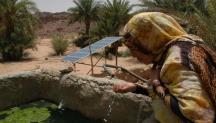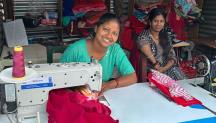

Insights from the 25th IRENA Council
Newsletter
In his opening remarks at the 25th meeting of the IRENA Council, held in Abu Dhabi between May 23-24, 2023, IRENA Director General Francesco La Camera said, “The latest IPCC assessments and messages show that staying on a 1.5-degree pathway is proving to be difficult, especially in light of the health and geopolitical crises that have occurred over the last few years.”

“The most realistic way to reach the global goal of 1.5 degrees is to develop a renewables-based energy transition strategy, one that promotes clean hydrogen, sustainable biomass, and leaves no country behind,” he added.
This year’s Council meeting was chaired by Mr. Tumasie Blair, Deputy Permanent Representative of Antigua and Barbuda to the United Nations, and vice-chaired by Mr. Joel Hansen, Senior Energy Officer, Department of State, United States of America. 113 countries and the European Union were registered for the event.

The Chair invited government representatives to share perspectives on how IRENA’s work has progressed in driving a just and equitable energy transition strategy, as outlined in the preview of the 2023 WETO report. Representatives also outlined their own country's ongoing efforts to enhance global renewable energy capacity.
Day one opened with an overview of the latest programmatic developments since the last Council Meeting. It was followed by a High-Level Panel Discussion on the Road to COP28, looking at the strategic objectives of this year’s 28th Conference of the Parties to the United Nations Framework Convention on Climate Change, which will be hosted in the UAE this November.
During the panel, Mr. Agus Tjahajana, Advisor on Acceleration of Industrial Development of the Minister of Energy and Mineral Resources, emphasized Indonesia’s reprioritization of renewable energy as a means of reducing the country’s reliance on fossil fuels.
Ms. Gloria Magombo, Permanent Secretary, Ministry of Energy and Power Development of Zimbabwe, highlighted how her country is grappling with the issue of moving up the value chain with respect to critical materials. She said, “We have most of the critical materials needed to develop renewable energy; however, we have been participating at the lowest level of the value chain, making it difficult to both add value and see value in return. We want to appeal to the international community to help us create capacity to fund our own developmental projects for the energy transition.”

H.E. Ms. Ana Fontoura Gouveia, Secretary of State for Energy and Climate, Ministry of Environment and Climate Action, Portugal, reiterated the IRENA Director-General’s opening sentiments, stating, “If we want to execute the energy transition correctly, it needs to be done in a way that promotes the development of multiple countries. That is why Portugal is proud to be supporting the European Union in developing the Critical Renewables Act, which is focused on providing a clear framework for a fair, equitable, and just transition.”

Later on the first day, a side event with Ms. Gauri Singh, IRENA’s Deputy Director-General, H.E Dr. Nawal Al-Hosany, Permanent Representative of the United Arab Emirates to IRENA, Mr. Roland Roesch, Director of IRENA’s Innovation and Technology Centre (IITC), and Ms. Arina Anisie, Country Analyst at IITC, as panelists, discussed the development of an innovation toolbox with 100 key innovations on smart electrification, the release of IRENA’s second innovation flagship report titled “Innovation Landscape for Smart Electrification,” and IRENA’s fourth Innovation Week taking place in September 2023.
While day one focused on the qualitative side of the energy transition, day two highlighted investments in renewable energy capacity building and climate finance.
On the second day, Ms. Rabia Ferroukhi, Director of IRENA’s Knowledge, Policy, and Finance Centre, delivered a presentation on the findings of the 2023 Renewable Energy Finance Report. She emphasised the following:
- Global investments need to more than quadruple to achieve the 1.5-degree target.
- Investments in end-uses must increase from USD 13 billion to USD 269 billion per year.
- More than half of the world’s population receives only 15% of climate investments.
Addressing the restricted reach of climate finance, Ms. Ferroukhi said, “While the global socio-economic impact of the energy transition is positive, the benefits vary significantly by region, which heavily influences the ability of LDCs and SIDS to create beneficial value chains.”

Ms. Ferroukhi also provided an overview of the different investment players in the renewable energy space and their local, regional, and global impact.
Day two also hosted a side event that delved into the details of the 2023 World Energy Transition Outlook before the Council Meeting resumed on the main stage with a presentation of IRENA’s Project Facilitation Tools, with a particular focus on the Energy Transition Accelerator Financing Platform (ETAF), IRENA’s multi-stakeholder climate finance solution to advance the global energy transition.
ETAF aims to accelerate energy transitions by directing USD $1 billion into renewable energy projects in developing economies. Currently, 31 projects are slated on ETAF’s timeline, with six projects currently going through the matchmaking process.
In addition to the programmatic discussions of the 25th Meeting, the Council also discussed administrative and institutional matters. They elected the United States of America and Panama as Chair and Vice-Chair, respectively, for the next Council Meeting, and selected Germany, the United Arab Emirates, and the United States of America as members of the Ethics Advisory Board for the next term.




